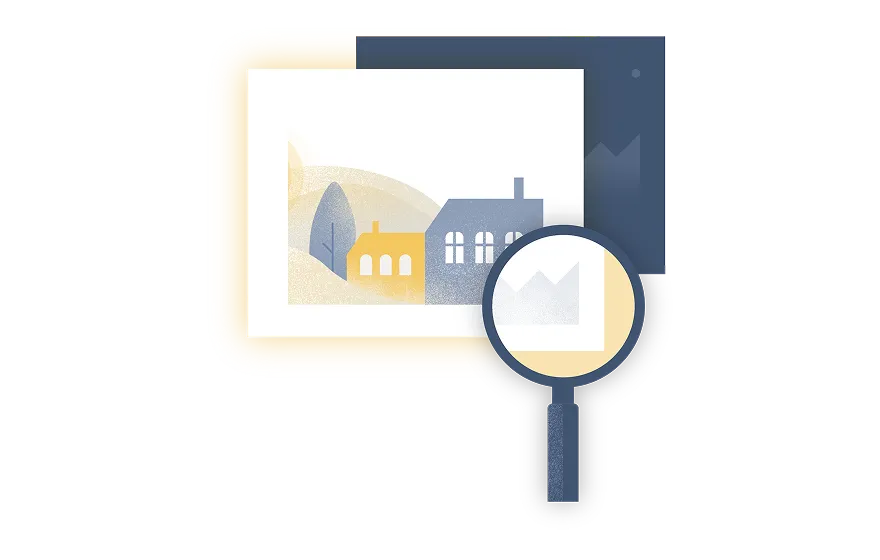A reverse mortgage can be a helpful financial tool for older homeowners looking to tap into their home equity without selling or taking on monthly payments. But how does it actually work? Although reverse mortgages can seem like a lifeline, these loans come with high costs, origination fees, and strict requirements.
Whether you're exploring ways to supplement retirement income, cover unexpected expenses, or just want to stay in your home longer, understanding the ins and outs of a reverse mortgage is key.
In this post, we’ll break down how reverse mortgages work, who qualifies, and what to expect during the process.
Reverse mortgage: How it works
A reverse mortgage works by allowing seniors who either own their home outright or have a very small mortgage left to leverage the equity in their home by withdrawing cash in the form of a reverse mortgage.
Instead of you paying the lender each month, the lender pays you. The loan is repaid when you sell the home, move out permanently, or pass away. It’s a way to access funds for retirement, healthcare, or other expenses while continuing to live in your home. However, you’re still responsible for property taxes, insurance, and home maintenance.
There are three main types of reverse mortgages:
- Home Equity Conversion Mortgage (HECM): The most common type, backed by the Federal Housing Administration (FHA). It offers flexible payment options and can be used for any purpose, but comes with strict requirements and mandatory counseling.
- Proprietary Reverse Mortgage: Offered by private lenders, these loans are not insured by the government and are often available to homeowners with higher-value properties. They may allow you to borrow more than a HECM.
- Single-Purpose Reverse Mortgage: Typically offered by state or local government agencies or nonprofits. These have lower fees but can only be used for specific purposes, like home repairs or property taxes.

Pros and cons of a reverse mortgage: How does it work?
There are some benefits and drawbacks of getting a reverse mortgage that homeowners should be aware of before applying for one.
Pros
- No monthly payments: When you get a reverse mortgage, there are no monthly payments. The lender is repaid when you move out, sell the house, or pass away. Not having monthly payments can be helpful for seniors who have valuable home equity but need additional cash flow in later years.
- Tax-free income: According to the IRS, reverse mortgage proceeds are considered a loan, not taxable income. That means that seniors can tap into their home equity and use the cash for their expenses, without having to pay income taxes on it.
- Stay in your home: The primary benefit of a reverse mortgage is that it enables seniors to remain in their homes. For those aged 62 or older, a reverse mortgage can provide enough money to maintain their home, pay property taxes and homeowners insurance, and cover basic living expenses.
Cons
- Strict requirements: Reverse mortgages have a list of requirements homeowners must meet. For example, homeowners must live in the home as their primary residence. If you’re away from it for more than six months, the lender may require immediate payment of the loan. You also must maintain the property.
- High fees: Reverse mortgages come with various fees, including origination fees, mortgage insurance premiums, and service fees. These fees cut into the amount you receive.
- Loss of home equity: When you get a reverse mortgage, you are leveraging the equity in your home. That means you might go from owning your home outright to only owning a portion of it.
- Impact on heirs: If you don’t tell your heirs that you’re getting a reverse mortgage, it may come as a surprise that there’s a loan against the house when they inherit it.
When does a reverse mortgage make sense?
A reverse mortgage can be a useful financial tool in the right circumstances—but it’s not for everyone.
It may be a good fit if:
- You’re 62 or older and own your home outright or have a significant amount of equity.
- You plan to stay in your home long-term. A reverse mortgage is best for homeowners who don’t plan to move, as the loan becomes due if you leave the home permanently.
- You need extra income to cover day-to-day expenses, medical costs, home repairs, or in-home care.
- You don’t mind reducing your home’s future inheritance value. If your heirs are aware and comfortable with the home potentially being sold to repay the loan, this option may make sense.
- You can keep up with property taxes, homeowners insurance, and maintenance. These costs are still your responsibility, even after taking out a reverse mortgage.
It’s worth exploring alternatives if:
- You plan to move within a few years. Since the loan comes due when you leave the home, short-term homeowners may not benefit.
- You want to leave the home to your heirs debt-free. A reverse mortgage reduces the equity in your home over time.
- You’re struggling with other financial responsibilities. Falling behind on taxes, insurance, or maintenance could cause you to default on the loan.
- You qualify for other lower-cost financing options. Alternatives like a home equity loan, HELOC, or home equity investment might offer more flexibility or fewer long-term costs.
- You’re unsure about the terms or long-term impact. If the loan structure feels confusing or high-risk, it’s worth speaking with a financial advisor or housing counselor before moving forward.
Reverse mortgage alternatives
Here are some alternative financial products to consider that also enable you to tap into your home equity.
- HELOC: A home equity line of credit (HELOC) works similarly to a credit card in that your lender will offer you financing up to a specific amount. You can draw funds as needed during a set period (typically 5–10 years), and you only pay interest on what you use. After the draw period ends, you'll begin repaying both principal and interest.
- Home equity loan: With a home equity loan, you get a lump sum payment that you repay in equal installments over a set term, typically 5 to 30 years.
- Home equity investment (HEI): Like reverse mortgages, home equity investments do not require monthly payments. Instead, you can settle the investment at any time during a flexible 30-year term, when you sell, refinance, or use another source of funds. However, unlike reverse mortgages, there are no age or conditional requirements, and you don’t have to pay off your first mortgage. Homeowners can qualify with sufficient equity and a credit score above 500 — there are no income requirements.
- Cash-out refinance: With a cash-out refinance, you replace your current mortgage with a new, larger mortgage, and take out the difference in cash. Refinancing is particularly beneficial if you can secure a lower interest.
Frequently asked questions
How much money do you actually get from a reverse mortgage?
The amount you can get with a reverse mortgage depends on your age, how much your home is worth, and FHA lending limits. As of 2025, the maximum HECM borrowing limit is $1,209,750, but homeowners may qualify for more if they get a proprietary reverse mortgage with a private lender.
What is the downside to reverse mortgages?
The biggest downside to a reverse mortgage is the high fees associated with it. These fees are often rolled into the reverse mortgage and can cut into the total amount you receive when you take out the loan. Additionally, the loan becomes immediately due once your home is no longer your primary residence, whether you need to move to assisted living or plan to travel the world for more than six months of the year.
What disqualifies you from getting a reverse mortgage?
Several factors may disqualify you from getting a reverse mortgage. If you don’t have enough equity in your home or you don’t meet the age requirements, you could be denied. Additionally, if your home is not your primary residence or is in disrepair, you won’t qualify for a reverse mortgage either. Finally, if you don’t complete the HUD approved mandatory counseling sessions for an HECM reverse mortgage, you will not be approved for one.
How are reverse mortgages and home equity investments different?
Home equity investments have fewer requirements than reverse mortgages. For example, home equity investments don’t have an age requirement. Also, home equity investments are a partnership between a homeowner and an HEI company, not a lender/borrower relationship. That means an HEI company purchases a portion of your home’s future value, whereas a reverse mortgage is a loan with interest.
How much does a reverse mortgage cost?
Just like with a traditional mortgage, getting a reverse mortgage comes with substantial closing costs. Lenders may require borrowers to pay for an appraisal, title search, origination fees, credit checks, and more. Plus, the FHA also charges mortgage insurance premiums, and some lenders charge annual maintenance fees to service the loan. Overall, it's a costly financial product, and homeowners should compare alternatives before applying for a reverse mortgage.

Final thoughts
A reverse mortgage is one of several financial products that enable homeowners to tap into their home equity and access cash for living expenses. However, because reverse mortgages come with high costs and strict requirements, it’s wise to look at several other options too.
For example, an HEI doesn’t have a monthly payment, and there are far fewer restrictions. To learn more about an HEI as an option, visit Point.
No income? No problem. Get a home equity solution that works for more people.
Prequalify in 60 seconds with no need for perfect credit.
Show me my offer
Frequently asked questions

Thank you for subscribing!
.webp)















